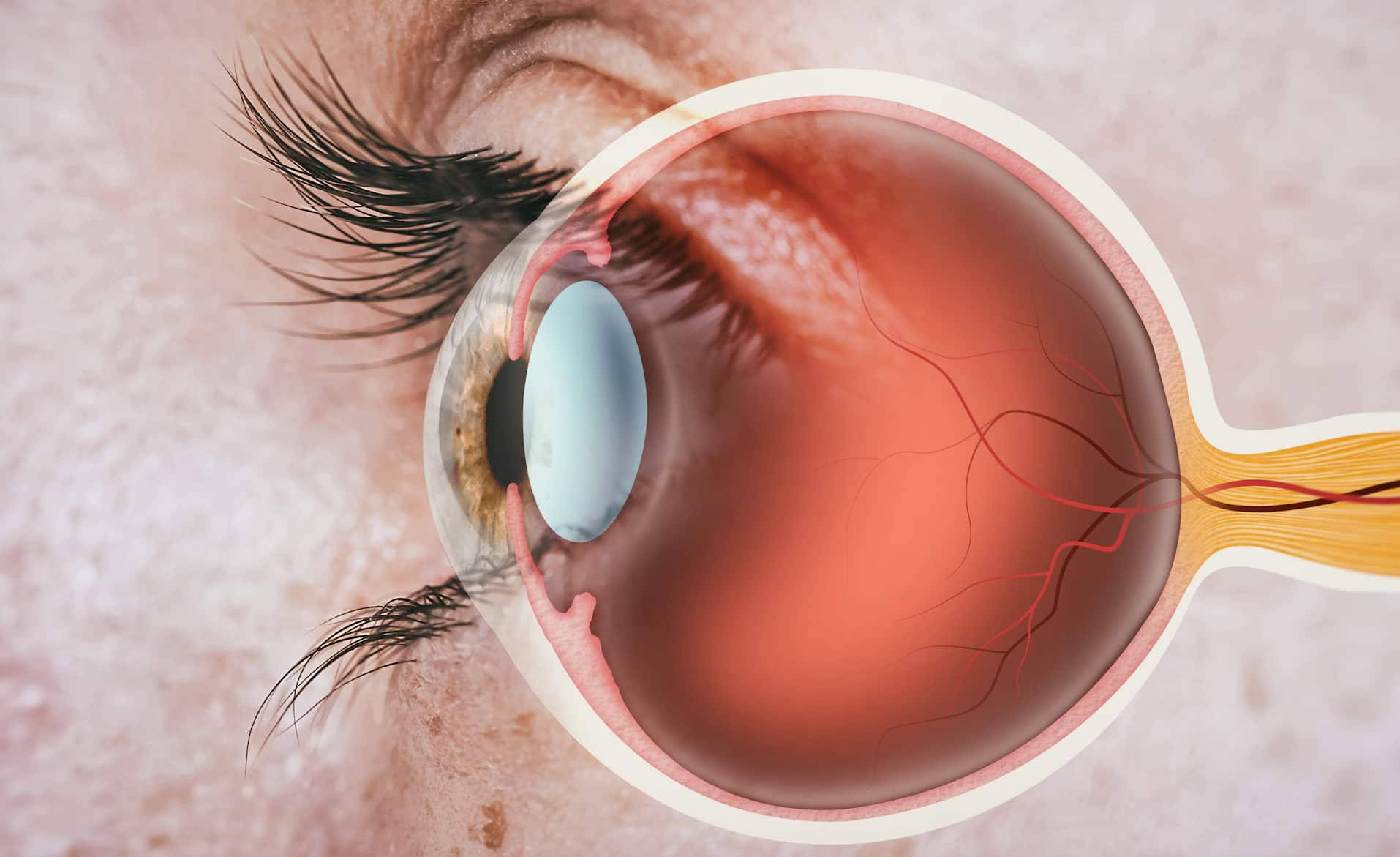Corneal Transplant in Turkey
Healthy Türkiye helps you find the best corneal transplant in Turkey at affordable prices and adopts a 360-degree service approach in all areas of health through affiliated hospitals.
- Medical Treatment
- Eye Surgery in Turkey
- Corneal Transplant in Turkey
- Lasik Eye Surgery in Turkey
- Retinal Detachment Treatment in Turkey
- Cataract Surgery in Turkey
- Astigmatism Treatment in Turkey
- Oculofacial Plastic Surgery in Turkey
- Ptosis Treatment in Turkey
- SBK Surgery in Turkey
- Dermatofibromas Removal in Turkey
- Glaucoma Surgery in Turkey
- Ocular Prosthesis in Turkey
- Retinoblastoma Treatment in Turkey
- Uveitis Treatment in Turkey
- Vitrectomy in Turkey
- Eye Muscle Surgery in Turkey
- PRK Surgery in Turkey
- Phacoemulsification Surgery in Turkey
- Pneumatic Retinopexy Surgery in Turkey
- Presbyopia Treatment in Turkey
- Refractive Surgery in Turkey
- Scleral Buckling Surgery in Turkey
- Strabismus Surgery in Turkey
- Extracapsular Cataract Extraction Surgery in Turkey
- Squint Surgery in Turkey
- Excimer Laser Surgery in Turkey
- LASEK Surgery in Turkey
- Homepage
- Medical Treatment
- Corneal Transplant in Turkey

About Corneal Transplant in Turkey
A corneal transplant in Turkey, also called keratoplasty, is surgery to replace damaged corneal tissue. The cornea is the transparent, dome-shaped surface of the eye, and it plays a large role in the eye’s ability to see clearly, light enters the eye through the cornea.
In a corneal transplant, the surgeon removes damaged corneal tissue and replaces it with healthy corneal tissue from a donor. Unlike solid organ transplants, corneal transplants don’t require tissue matching, because of this, the wait time to find donor tissue is often shorter than for other types of transplants.
If your cornea is scarred, damaged, or distorted to a point where the vision can no longer be improved with glasses or contact lenses, you may need a corneal transplant in Turkey to provide clear vision. The corneal transplant can also relieve any pain or discomfort caused by severe infection or injury that is no longer being managed effectively with treatment.
At Healthy Türkiye, our ophthalmologists are internationally recognized for their ground-breaking research and expertise in the latest techniques for all forms of corneal transplantation. We can also treat patients for eye trauma that might cause corneal abrasion; corneal ulcers that can result from bacterial, viral, or fungal infections; keratitis, an inflammation caused by infection or injury; and ocular herpes.

Keratoplasty in Turkey
Keratoplasty also called cornea transplant is a surgical procedure that replaces all or part of your damaged cornea with donor corneal tissue. Keratoplasty can be categorized as “full thickness” or “back layer.” The aim is to replace damaged or diseased cornea tissue that is impacting the patient’s vision beyond what can be corrected with eyeglasses or contact lenses. It, can bring back vision, lessen pain, and improve the appearance of your cornea if it is white and scarred.
While success rates may vary due to pre-existing conditions in your eye, technological advancements in Turkey have increased the chance of success. Approximately 95% of corneal transplants are successful, and the new cornea will stay healthy for an average of 10 years.
Corneas used in transplants come from people who have died. But corneas from people who died from unknown causes are not used. Also, corneas from people who had previous eye surgery, eye disease, or certain conditions, such as diseases that are passed from one person to the next, are not used. Unlike patients who need organs such as livers and kidneys, people needing cornea transplants don’t require tissue matching.

We Care About Your Health
Healthy Türkiye provides the best for your health and comfort. You will feel privileged with us.
7/24 Quality Personal Assistance Throughout Your Journey
Customizable for You All-Inclusive Packages
Get the Right Advice for your Health
Types of Corneal Transplant in Turkey
Depending on the layer of corneal tissue involved, the type of corneal transplantation can differ. It means the type of transplant you will be offered depends on the layers of your cornea that are affected. There are three main types of corneal transplants.
Endothelial Keratoplasty (EK) in Turkey
Endothelial keratoplasty replaces only the innermost layers of the cornea, making it suitable for corneal dystrophies and conditions solely affecting the endothelial layer of the cornea, such as Fuchs endothelial dystrophy. It is usually carried out under both local and general anesthesia and takes about an hour.
There are two main types of endothelial keratoplasty, which require different preparations:
In Turkey, Descemet’s stripping endothelial keratoplasty (DSEK), also known as a ‘DSAEK’ where the ‘A’ stands for automated. In DSEK you receive a replacement endothelium and Descemet’s membrane, as well as some of the stroma from a donor cornea. DSAEK is the most widely used.
In Descemet’s membrane endothelial keratoplasty (DMEK), you receive only the endothelium and Descemet’s membrane from a donor cornea.
Deep Anterior Lamellar Keratoplasty (DALK) in Turkey
In DALK, the surgeon removes the corneal epithelium, Bowman’s membrane, and stromal layers from the center of your cornea, leaving Descemet’s membrane and the innermost endothelial layer in place.
The ophthalmologist then places a specially prepared donor cornea (“button”) containing stroma and epithelium onto your cornea. The donor button is cut so that it fits precisely into the site of your cornea which was removed. This donor cornea position is secured by small sutures until it heals in place.
DALK often takes about a year to heal. Some stitches may be removed before this, but usually not before the first 6 months.
Penetrating Keratoplasty (PK) in Turkey
Penetrating keratoplasty is a “full thickness” transplant. It is more likely to be offered if the stroma and endothelium of your cornea are damaged, for example in keratoconus. During penetrating K-keratoplasty your whole cornea is replaced by a donor cornea which is held in place with sutures. Corneal transplant sutures are made of nylon which is non-absorbable and provides long-lasting good tensile strength in tissues, sutures are generally left in place for a year or more following surgery.
Prepare for Corneal Transplant in Turkey
A condition affecting the cornea should be thoroughly assessed to enable the procedure to be administered for more serious conditions and provide the best chance of maintaining vision. This generally will include advanced technology scanning, as well as observation of your corneal integrity and shape using a specialized microscope, called a ‘slit lamp.
A yellow dye called ‘fluorescein’ can be used under the blue light of the instrument to observe weakened or damaged corneal cells and evaluate the quality and volume of your natural tears. On occasion, anesthetic drops can be required to aid our examinations by temporarily numbing the eye, and alleviating discomfort or excessive tearing.
Your eye doctor determines what size donor cornea you need. You may need to stop taking certain medications or supplements before or after your cornea transplant. Also, unrelated eye problems, such as infection or swelling, can reduce your chances of a successful cornea transplant, the eye doctor will treat those problems before your surgery.

How Is a Corneal Transplant Performed?
Corneal transplant in Turkey usually takes around an hour, although depending on the type you are having, it may take up to two hours to complete. Transplant surgery can be done under either local anaesthetic or general anaesthetic.
If you have a local anaesthetic, you will often have an injection into the soft tissue around your eye, not into your eye itself. Also, you will be given eye drops to numb the front of the eye. The injection stops you from feeling pain in your eye, reduces what you can see and stops your eye from moving around, and you will need to be able to lie still for the whole operation to be suitable for local anaesthetic.
Recovery from Corneal Transplant in Turkey
Your eye is not too painful following the surgery, but if there is any discomfort you may be given painkillers such as paracetamol. The sutures in your eye may make your eye feel gritty, but these are not uncomfortable or painful.
Following surgery, your eye will be patched. You can often go home either the same day or the next day but will have to go back within the first week to have your eye checked by your ophthalmologist. During this time, you can need to wear a plastic shield at night to protect your eye while you are asleep.
You should need to use steroid eye drops for at least one year and in some cases, life-long to prevent your immune system from rejecting the new donor corneal layers. Also, you might need to take other medicines to suppress your immune system if your ophthalmologist feels that there is a high risk of rejection.
Vision After Keratoplasty
Your vision should gradually improve a few weeks after the surgery, but it could take up to 1 year to have a stable sight. The curve of the implanted corneal tissue can’t fit exactly the curve of your natural cornea, so, your treated eye may be left with a degree of nearsightedness. Mild refractive faults caused by keratoplasty can be treated with eyeglasses or contact lenses.
Due to your eyesight will change during the few months after your surgery, it is suggested to wait until your vision becomes stable before you fill an eyeglass prescription. Also, after your cornea transplant has fully recovered, LASIK eye surgery may be recommended to improve your vision without eyeglasses or contact lenses.

2026 Cost of Corneal Transplant in Turkey
All types of medical attentions like corneal transplant are very affordable in Turkey. Many factors are also included in determining the cost of corneal transplant in Turkey. Your process with Healthy Türkiye will last from the time you decide to have a corneal transplant in Turkey until the time you are fully recovered even if you are back home. The exact corneal transplant procedure cost in Turkey depends on the type of operation involved.
The cost of corneal transplant in Turkey does not demonstrate many variations in 2026. Compared to costs in developed countries like the United States or the UK, corneal transplant costs in Turkey are relatively low. So, it’s no wonder patients from across the world visit Turkey for corneal transplant procedures. However, the price is not the only factor affecting choices. We suggest looking for hospitals that are safe and have corneal transplant reviews on Google. When people decide to seek medical help for corneal transplant, they will not only have had low-cost procedures in Turkey, but also the safest and best treatment.
At clinics or hospitals contracted with Healthy Türkiye, patients will receive the best corneal transplant from specialist doctors in Turkey at affordable rates. Healthy Türkiye teams provide medical attention corneal transplant procedures and high-quality treatment to patients at a minimum cost. When you contact Healthy Türkiye assistants, you can get free information about the cost of corneal transplant in Turkey and what this cost covers.
The cost of a corneal transplant in the UK is between £23.000-£35.000.
The cost of a corneal transplant in the USA is between $30.000-$45.000.
The cost of a corneal transplant in Turkey is between $12.000-$18.000.
Price of Corneal Transplant in the UK?
Price of Corneal Transplant in the USA?
Price of Corneal Transplant in Turkey?
Why Choose Turkey for Corneal Transplant?
Turkey is a common choice among international patients seeking advanced corneal transplant. Turkey’s health procedures are safe and effective operations with a high success rate like corneal transplant. The increasing demand for high-quality corneal transplant at affordable prices has made Turkey a popular medical travel destination. In Turkey, corneal transplant is performed by highly experienced and trained doctors with the most advanced technology in the world. corneal transplant is done in Istanbul, Ankara, Antalya, and other major cities. The reasons for choosing corneal transplant in Turkey are as follows:
High-quality hospitals: Joint Commission International (JCI) accredited hospitals have dedicated corneal transplant units that are specially designed for patients. International and national strict protocols provide effective and successful corneal transplant for patients in Turkey.
Qualified experts: The expert teams include nurses and specialist doctors, together to carry out corneal transplant according to the patient’s needs. All the included doctors are highly experienced in performing corneal transplant.
Affordable price: The cost of corneal transplants in Turkey is affordable compared to Europe, the USA, the UK, Singapore, Australia, etc.
The high success rate: Highly experienced specialists, the best available technology, and stringently followed safety guidelines for post-operative care of the patient, resulting in a high success rate for corneal transplant in Turkey.
Is Corneal Transplant Safe in Turkey?
Did you know Turkey is one of the most visited destinations for corneal transplant in the world? It is ranked one of the most visited tourist destinations for corneal transplant. Over the years it has also come to be a very popular medical tourism destination too with many tourists coming in for corneal transplant. There are so many reasons why Turkey stands out as a leading destination for corneal transplant. Because Turkey is both safe and easy to travel to too with a regional airport hub and flight connections to pretty much everywhere, it is preferred for corneal transplant.
The best hospitals in Turkey have experienced medical staff and specialists who have performed thousands of medical services such as corneal transplant. All procedures and coordination related to corneal transplant are controlled by the Ministry of Health in accordance with the law. Over many years, the greatest progress in medicine has been observed in the field of corneal transplant. Turkey is known among foreign patients for its great opportunities in the area of corneal transplant.
To emphasize, besides the price itself, the key factor in selecting a destination for corneal transplant is certainly the standard of medical services, the hospital staff’s high expertise, hospitality, and the safety of the country.
All Inclusive Packages for Corneal Transplant in Turkey
Healthy Türkiye offers all-inclusive packages for corneal transplant in Turkey at much lower prices. Extremely professional and experienced doctors and technicians carry out the high quality corneal transplant. The cost of corneal transplant in European countries can be quite expensive, especially in the UK. Healthy Türkiye provides cheap all-inclusive packages for a long and short stay of corneal transplant in Turkey. Because of many factors, we can provide you with many opportunities for your corneal transplant in Turkey.
The price of corneal transplant differs from other countries due to medical fees, staff labor prices, exchange rates, and market competition. You can save much more in corneal transplant compared to other countries in Turkey. When you purchase corneal transplant all-inclusive package with Healthy Türkiye our healthcare team will present of hotels for you to choose from. In corneal transplant travel, you will have the price of your stay included in the all-inclusive package cost.
In Turkey, when you purchase corneal transplant all-inclusive packages through Healthy Türkiye, you will always receive VIP transfers. These are provided by Healthy Türkiye, which is contracted with highly qualified hospitals for corneal transplant in Turkey. Healthy Türkiye teams will organize everything about corneal transplant for you and have you picked up from the airport and safely brought to your accommodation.
Once settled in the hotel, you will be transferred to and from the clinic or hospital for corneal transplant. After your corneal transplant has been successfully completed, the transfer team will return you to the airport in time for your flight home. In Turkey, all packages of corneal transplant can be arranged upon request, which relaxes the minds of our patients.
The Best Hospitals in Turkey for Corneal Transplant
The best hospitals in Turkey for corneal transplant are Healthy Türkiye, Memorial Hospital, Acıbadem International Hospital, and Medicalpark Hospital. These hospitals attract patients from all over the world seeking corneal transplant due to their affordable prices and high success rates.
Best Doctors and Surgeons in Turkey for Corneal Transplant
The best doctors and surgeons in Turkey for corneal transplant are highly skilled professionals who offer specialized care and advanced procedures. With their expertise and state-of-the-art techniques, these specialists ensure that patients receive high-quality corneal transplant and achieve optimal health results.

Frequently Asked Questions
You should avoid rubbing your eyes. During the first weeks after surgery, you should avoid strenuous exercise and heavy lifting.
Mostly cornea transplants are successful and will work without complications for at least 10 years.
DMEK, DSAEK, and PK patients should avoid heavy lifting and bend past the waist for the first week after surgery. Patients receiving a PK must protect their eyes for the rest of their life and avoid any kind of full-contact activities that could result in a direct blow to the eye.
After the first day, shaving, brushing teeth, bathing, light housework, bending over, reading, and watching TV will not hurt the eye.
After your corneal transplant, you may be told to lie on your back at times throughout the first few days. You will also need to wear an eye shield overnight, then you will need to wear a clear eye shield or glasses to protect your eye until it has healed.
Your vision will continue to improve for up to 1 year following your surgery. But you will need glasses or contact lenses after surgery because the curve of the corneal transplant cannot match exactly the curve of your natural cornea.
Patients have gone from being almost fully visually impaired to having perfect to near-perfect eyesight right after the operation.
This is the most invasive type of transplant since the entire cornea is replaced and 15-20 stitches may be required.
